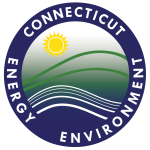Educator Workshop Curricula
Find out how to bring these resources into your classroom or program by attending one of the Department of Energy and Environmental Protection's interesting teacher workshops
Project Food, Land and People is designed to provide supplementary educational material emphasizing the environment and our agricultural impact. It promotes an educational approach that allows students to understand the interrelationships among agriculture and the environment and the people of the world. Its goal is to create critical thinking skills that will provide for sustainable practices that benefit our environment while meeting our needs for food, clothing, and shelter. This project was designed to complement Project Learning Tree, WILD, Agriculture in the Classroom materials, and national youth programs. To learn more about this program, email Susan Quincy or call (203) 734-2513.
National Food, Land, and People website
Project Learning Tree (PLT) uses the forest as a "window on the world" to increase students’ understanding of our complex environment; to stimulate critical and creative thinking; to develop the ability to make informed decisions on environmental issues; and to instill the confidence and commitment to take responsible action on behalf of the environment. PLT is a comprehensive environmental education curriculum. It is not just about trees; it is about the total environment: land, air and water. PLT is local, national and global in scope. To learn more about this program, email Kristen Bellantuono or call (860) 424-3917.
Connecticut PLT website | National PLT website
Project WILD emphasizes wildlife and habitat. Aquatic WILD focuses on aquatic wildlife and aquatic ecosystems. WILD materials are used indoors or outdoors and include a mix of activities for independent exploration, cooperative learning, and full group instruction. Materials are appropriate for use by formal classroom teachers as well as by people who work with and teach youth outside the formal classroom setting. To learn more about this program, email Susan Robinson or call (203) 734-2513.
National WILD website
Project WET (Water Education for Teachers) explores people's relationships to water. The 516-page curriculum guide is full of activities that are hands-on, easy to use and fun! Activities incorporate a variety of learning formats, such as large and small group learning, whole body activities and laboratory investigations. The WET curriculum itself covers the full spectrum of water-related topics and concepts, from water's role in the social and cultural contexts of our lives to its existence as a managed resource and an essential ingredient of life throughout all Earth systems. These activities promote critical thinking and problem solving skills. To learn more about this program, email Susan Quincy or call (203) 734-2513. National Project WET website For the list of Project Wet activities that correlate to the CT Science Curriculum Framework, please visit Project Wet Science Correlations.
The Connecticut Department of Energy and Environmental Protection is the official state sponsor of Project Learning Tree; Food, Land and People; Project WILD; Aquatic WILD; and Project WET. The DEEP partners with other organizations to support Project Search.
Content Last Updated October 2017

